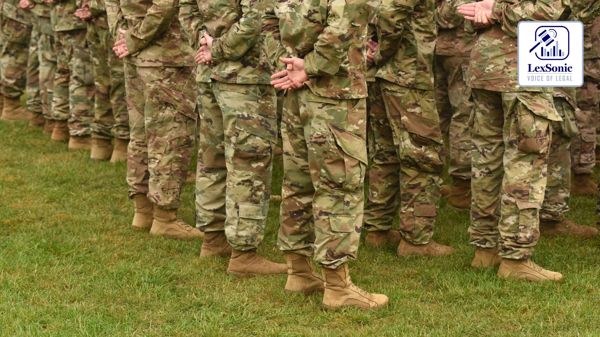Contempt or Compliance? Unpacking the Military Promotion Dispute.
07 October 2024
Armed Forces Tribunal >> Miscellaneous
In the matter of Mohinder Singh Randhawa Giani vs S. Padmanabhan, the petitioner sought the initiation of contempt proceedings under the Contempt of Courts Act, 1971, against the respondent, alleging willful disobedience of a Court's directions passed on 08.12.1999. The matter revolves around the petitioner's claim for promotion and consequential financial benefits, following his earlier discharge from military service, which was subsequently quashed by the Court. However, several years of legal disputes and procedural complexities led to this contempt petition being filed. This article aims to dissect the key issues, judicial decisions, and final ruling regarding the matter.
Background:
The petitioner had served as a religious teacher (Granthi), a position equivalent to that of Naib Subedar in the Indian Army. He was discharged from service by an order dated 18.03.1980. However, the petitioner challenged the discharge through a writ petition (C.W. 563/1981), which the Court accepted, quashing the discharge order. The Court's decision also entailed that the petitioner be granted all consequential benefits arising from the quashing of his discharge.

Claim for Promotions:
The crux of the petitioner's grievance centers on his claim for promotion and the associated pay and benefits. Having served for 36 years, the petitioner contended that he was entitled to be considered for promotions to the rank of Subedar and Subedar Major, along with the corresponding financial benefits of such notional promotions. His counsel argued that, since promotions had been granted to his juniors, he too should be entitled to similar treatment, including time-scale promotions and notional promotions.
Defendant's Argument:
On the other hand, the respondent's counsel argued that the financial benefits, including the petitioner’s pay and emoluments, had already been computed and released in accordance with the Court's earlier directives. They further asserted that promotions to the rank of Subedar and Subedar Major were merit-based, and not time-bound, as per the applicable Army regulations. In addition, the respondent claimed that the petitioner had already retired in 2001, and no further benefits or promotions could be claimed at that stage.
Judicial Journey and Review Proceedings:
The petitioner's claims were contested in various stages, including a Letters Patent Appeal (LPA) and subsequent review petitions. The Division Bench of the Court, while dismissing the appeal, recorded a statement that the petitioner would not claim the promotion to the position he held before his discharge. This clarification was important as it impacted the petitioner’s future claims related to promotions and benefits.
However, the case continued to be delayed, and in 2012, the learned Single Judge directed the respondent to grant the petitioner his notional promotions. This order was later reviewed in 2019, with the court ultimately recalling the decision due to procedural errors and the fact that the promotion from Naib Subedar to Subedar and from Subedar to Subedar Major were not time-bound promotions, but were based on merit and selection.
Army Instructions and Promotion Criteria:
The petitioner’s counsel argued that Army Instructions dated 18.01.1993, which differentiated the promotion criteria for religious teachers/Padres, were not properly considered by the respondent. The instructions stipulated that promotions should be based on seniority-cum-fitness, and the petitioner sought notional promotions based on the time scale from March 1993 and 1995, when his juniors were promoted.
However, the Court noted that the Army Instructions from 1958, upon which the petitioner based his argument, had been superseded by newer criteria from 1984 and subsequent amendments. These updated criteria did not provide a basis for granting notional promotions.
Final Decision:
After a thorough examination of the case, including the respondent’s submissions and the petitioner’s arguments, the Court concluded that the respondent had already complied with the directions regarding the payment of financial benefits. Furthermore, since the claim for notional promotion was based on outdated instructions and was not backed by merit-based promotion criteria, the Court held that no further relief could be granted to the petitioner.
The Court found no willful disobedience or contempt on the part of the respondent and dismissed the contempt petition, noting that the petitioner had already received the financial benefits owed to him as per the Court's earlier orders.
Conclusion:
This case serves as an important reminder of the complexities involved in the implementation of Court orders, particularly in matters relating to promotions and consequential benefits in military service. The distinction between time-bound and merit-based promotions remains a crucial element in such disputes. The dismissal of the contempt petition underscores the importance of timely and accurate legal proceedings in resolving issues of service benefits and promotions in the armed forces.
